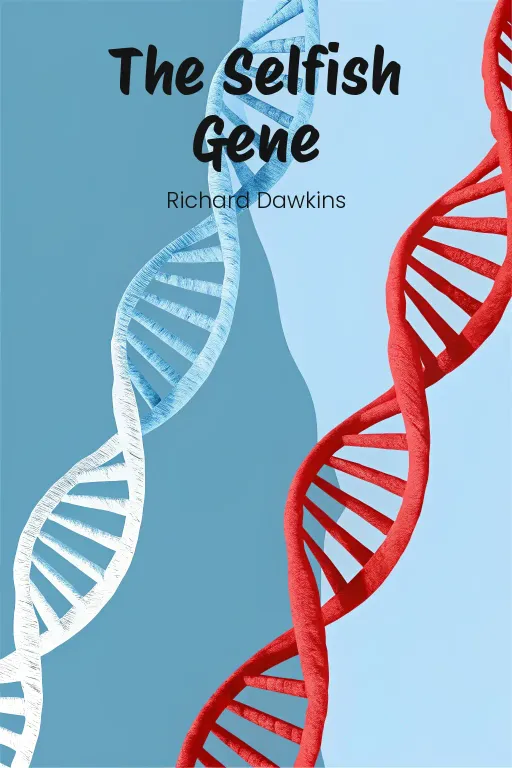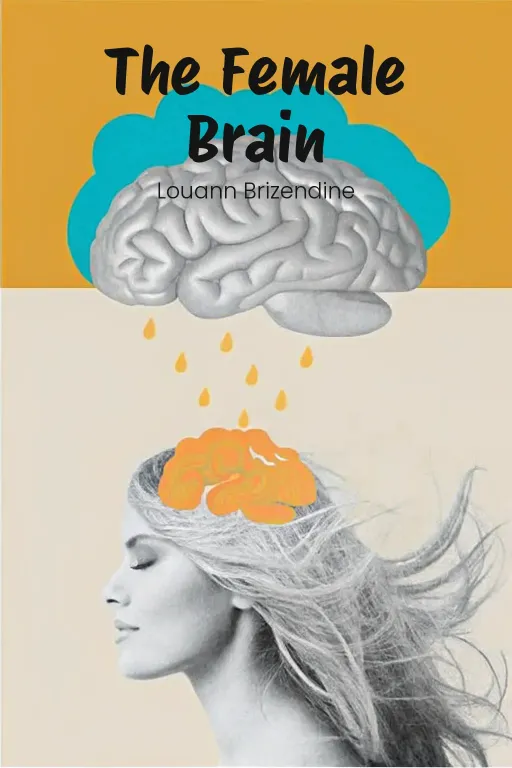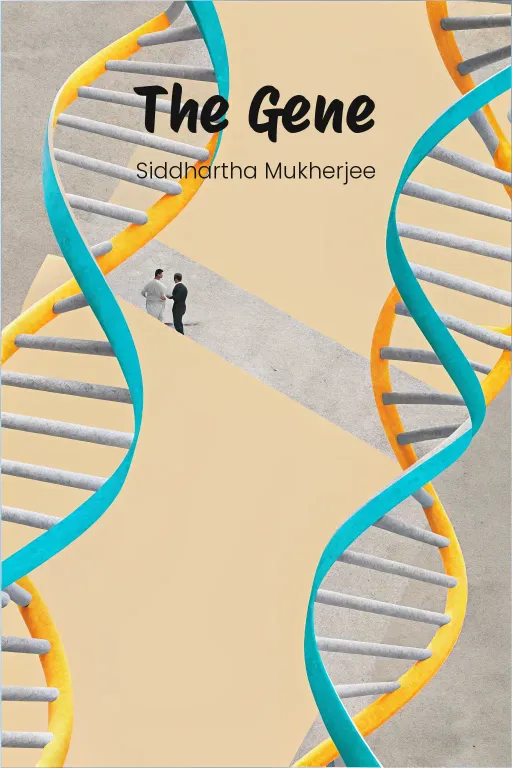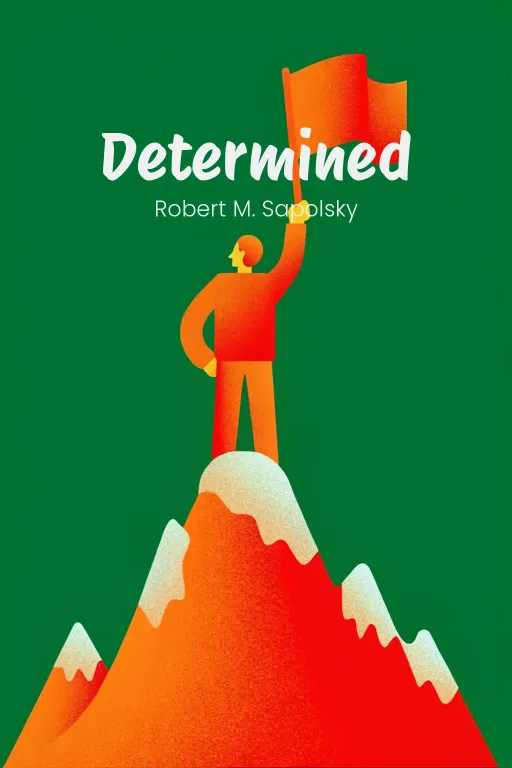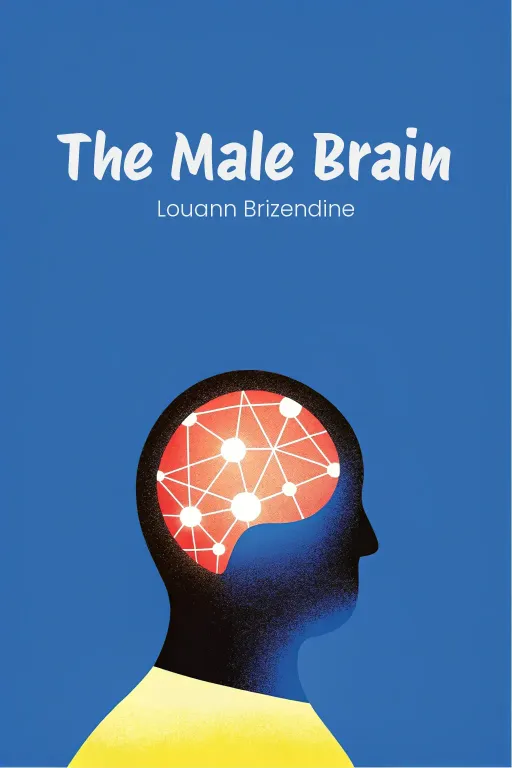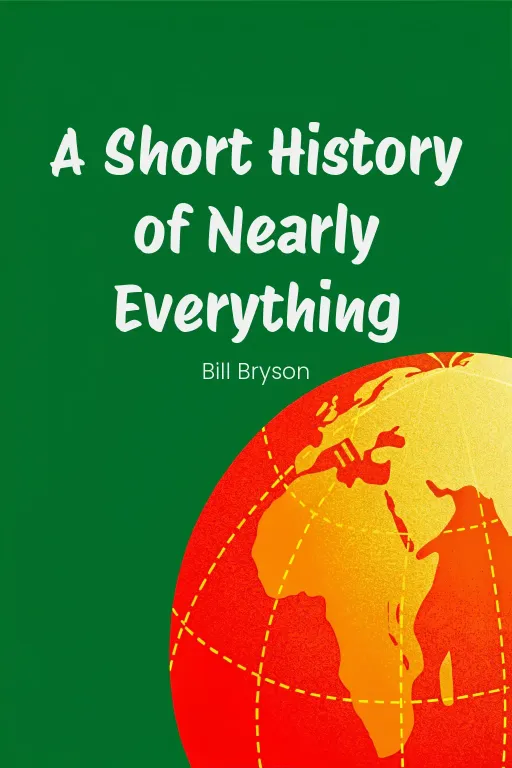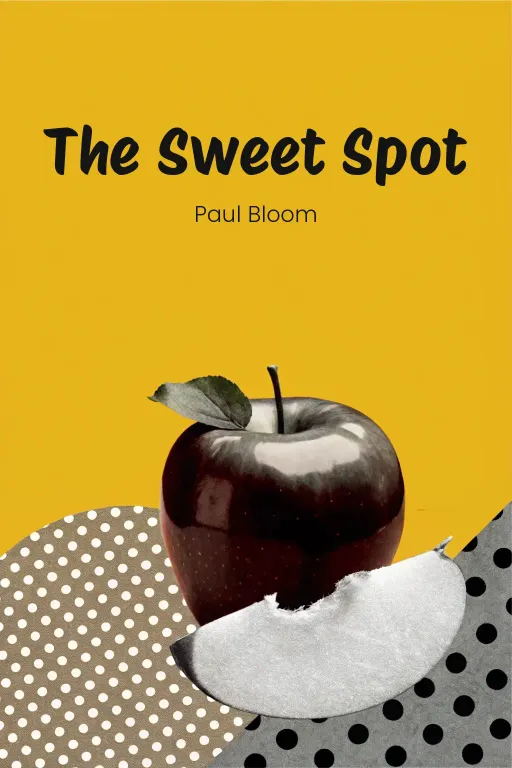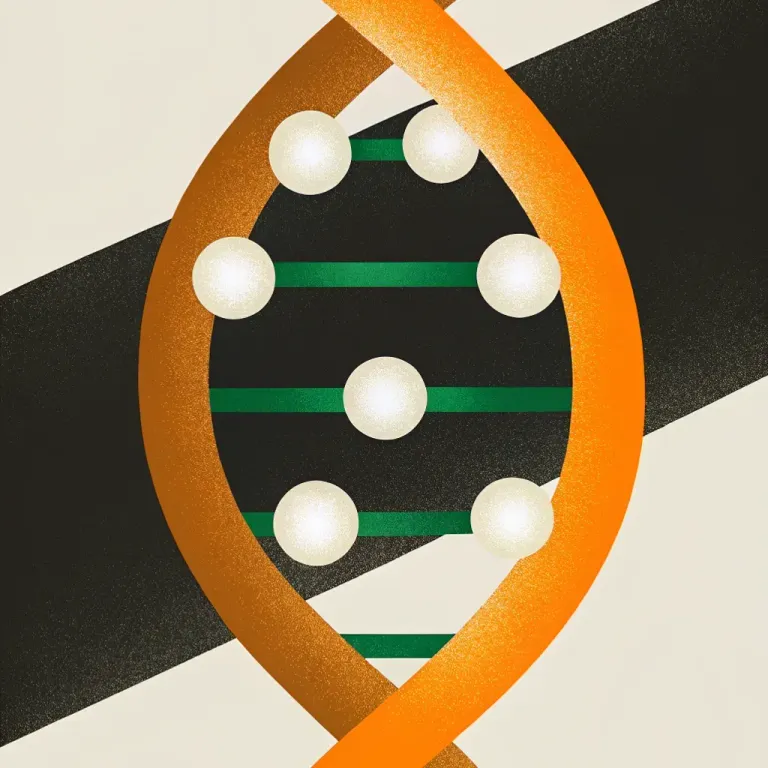
Edit Your Genes, Edit Humanity?
Podcast by Wired In with Josh and Drew
An Intimate History
Edit Your Genes, Edit Humanity?
Part 1
Josh: Hey everyone, and welcome! Today's conversation is gonna be… well, let's just say it gets “really” personal. We're talking about genetics – the DNA that makes you, you. It's where science, history, and even philosophy, all kind of collide. It's not just about our bodies, but how we even understand being human. Drew: Exactly, Ange. It's way more than just high school biology. Think about it: this is the code, right, that dictates everything, from your eye color, to, you know, those weird little personality quirks. But here’s the big question: What happens when we start editing that code? Are we talking about some kind of health and brilliance utopia? Or are we opening Pandora’s Box and basically rewriting what it means to be human? Josh: That's the million-dollar question, right? And guiding us through all of this is Siddhartha Mukherjee's "The Gene: An Intimate History." It’s an amazing book. He takes us on a real journey – I mean, all the way back to the ancient ideas about heredity, through these huge discoveries like Mendel’s pea experiments, mapping the human genome, all the way to today's tool like CRISPR. And, he also weaves in his own family history, grappling with mental illness, which makes it all so much more…personal and powerful. Drew: Right, it's not just some dry textbook. He really wrestles with the ethics, you know? Eugenics, genetic manipulation… the whole “playing God” thing. What does it actually mean for our society if we go down that road? That's where things get complicated, and super interesting. Josh: Absolutely. So, in this episode, we're gonna break it down into three key parts. First, we'll look at the scientific breakthroughs that have gotten us to this genetic frontier. Then, we’ll dive into the ethical side of things – CRISPR, and all that. Are we solving problems, or creating a whole new set of unpredictable issues? And finally, we'll explore how our understanding of genetics is changing our own sense of identity. Like, what really makes us who we are? Drew: Yeah, get ready, guys. This isn't just about genes; it's about the very soul of humanity, written in A, T, C, and G.
Historical Foundations and Scientific Breakthroughs in Genetics
Part 2
Josh: Okay, so let’s dive into our first key area - how we actually got here. The history of genetics goes way back, even before we had a name for it. To really grasp where we are now, we need to rewind to ancient Greece, where thinkers like Pythagoras and Aristotle first started pondering heredity. Imagine them just observing nature, trying to figure out the mysteries of life. But, of course, they didn't have anything close to the scientific methods we use today. Drew: Yeah, what I find amazing is how they were able to use logic and philosophy to get surprisingly close to some of the key ideas. I mean, Aristotle’s idea that both parents contribute to the offspring’s traits – that almost sounds like modern genetics. But then you realize they “really” didn't have anything to actually test their ideas. It was all just thinking, no real experiments. So, Josh, how do we get from those ancient theories to Gregor Mendel's pea experiments? Josh: Ah, Mendel’s peas! They're a true symbol of observation and perseverance. In the 19th century, Mendel turned heredity from a philosophical concept into a systematic science. He experimented with pea plants, focusing on specific traits like flower color and plant height, crossbreeding over generations. Imagine him carefully tracking these traits and finding patterns that showed up in mathematical ratios. That was his genius – he wasn't just counting peas; he was discovering that traits are passed down through these distinct units, which we now call "genes." Drew: Yeah, we should probably give him some credit here. He was documenting these patterns almost like he was using Excel spreadsheets before the computer existed. How did those 3:1 ratios become the very foundation of modern genetics, huh? It's almost like inventing calculus in your backyard. Josh: Exactly, Drew. But the funny thing is that Mendel’s ratios weren’t exactly celebrated at first. It actually took decades for his work to be rediscovered in the early 20th century. Other scientists looked back at his experiments and linked them to the chromosomes they were seeing under microscopes. That's when genetics became a real, established scientific field. And speaking of chromosomes, this leads us right to Thomas Hunt Morgan and his fruit fly experiments. Drew: Ah yes, the fruit fly, Drosophila melanogaster. No offense to the scientists, but I imagine Morgan in some lab with tons of bugs in jars. It's a little humbler than CRISPR, right? Josh: Very true. Morgan’s "Fly Room" has become legendary. His experiments were groundbreaking because they proved that genes are carried on chromosomes. By observing mutations, like eye color in fruit flies, he basically laid the groundwork for genetic mapping. That was a huge step. Those tiny flies showed that genes weren’t just abstract units from Mendel, but they actually existed in specific spots on chromosomes. Drew: So, it’s like they suddenly got the genetic GPS. Morgan's work set the stage for the molecular revolution though, right? Then comes DNA – the famous molecule we all know. How do we get from chromosomes to Watson, Crick, and the double helix? Josh: Yes, that's when the story gets much more detailed. In the mid-20th century, Rosalind Franklin’s X-ray images revealed the DNA molecule’s helical structure. This gave Watson and Crick the key ideas they needed to create the double-helix model. The molecule looks like a twisted ladder, with pairs of adenine-thymine and cytosine-guanine connecting it. It wasn't just a pretty design, it explained how DNA replicates itself and carries hereditary information. Drew: I love how DNA is both a metaphor and a mechanism. It's a double helix, but also a symbol for the complexity of life. If understanding DNA’s structure was a huge step, moving to the Human Genome Project feels like light speed, right? Sequencing 3 billion base pairs? That’s pretty ambitious. Josh: Absolutely monumental. The Human Genome Project, which started in 1990, was a global collaborative effort to map our genetic code, like a blueprint for humans. There was also competition from private companies like Celera. The race to sequence our genome led to the development of high-speed DNA sequencing. In 2001, they unveiled the results, starting a new era where our genetic code could be analyzed to understand the links between genes and diseases. Drew: What's crazy is that it started with medical goals - diagnosing cancer, diabetes, and all that. But the tools also sort of gave us a giant mirror. We had a way to see ourselves as a species, at a “really” fundamental level. It's like, nature wrote an autobiography, and we finally learned the language. Josh: Beautifully put, Drew. And that leads us to CRISPR, which doesn’t just read the autobiography, it's actually holding the pen now. CRISPR-Cas9 makes gene editing simpler by cutting and modifying DNA very precisely. Things that were once science fiction – like curing genetic diseases – are now actually possible. For example, correcting the mutation that causes sickle cell anemia. It’s revolutionary, but it also brings its own challenges with it. Drew: Yeah, totally gives you Frankenstein vibes. We’ve gone from studying genetic equations to basically editing the equation itself. The tools might be getting more precise, but the ethical questions definitely aren't getting any easier, are they? Josh: Exactly! That’s why understanding the history is so important. These breakthroughs, from Mendel’s garden to CRISPR labs, display our scientific achievements and the growing responsibility we have to use this knowledge wisely. We’ve explored the foundations of genetics, and next we’re going to talk about how to use this power ethically and responsibly.
Ethical and Societal Implications of Genetic Technologies
Part 3
Josh: Building on those milestones, Drew, our discussion really needs to tackle the ethical and societal challenges that come with genetic advancements. It’s not just about mapping or editing the genome; it's about the repercussions of messing with the blueprint of life. I think that's why this conversation shifts so quickly from technological brilliance to complicated moral questions. Drew: Absolutely, Josh. That's exactly where we're headed—exploring these ethical challenges. We're going to look at some dark chapters, like the misuse of eugenics, and then dive into the complex debates of today about gene therapy and reproductive technology. The brilliance of the science can’t be separated from its impact on society, can it? Josh: Absolutely inseparable. Drew: Let's start with eugenics. Reading about Francis Galton's ideas on creating “better” humans through genetics is pretty chilling now. I mean, he framed things like intelligence and morality as purely hereditary, so it was bound to lead down a dangerous path. But, back then, did it seem almost like a good idea? Josh: That was part of the problem, Drew—it was presented as a noble mission, “improving society.” Francis Galton coined “eugenics” in the late 1800s, suggesting selective breeding to boost good traits and minimize bad ones. But here’s the problem: his ideas about heredity relied on flawed methods. He studied successful families without considering their environmental advantages. So, what started as flawed science led to policies with terrible consequences. Drew: And those consequences... oh man. The 20th century is basically a lesson in what not to do with genetic science. I’m talking forced sterilizations in the U.S. that targeted people with disabilities and minorities. And worse, eugenics became part of Nazi ideology. It’s hard to stomach how science became a tool of discrimination under the guise of progress. Josh: The Nazi atrocities are, you know, a horrifying example of how scientific ideas, UNCHECKED by ethics, can justify the worst things. Hitler used pseudo-scientific eugenics to promote “racial hygiene,” which led to genocide. The Holocaust showed just how vital it is to separate scientific inquiry from prejudiced ideology. Drew: Still, I see echoes of these ideas even today—though in ways that are more subtle. When people talk about gene editing or embryo selection, it brings us back to the same basic question: who gets to decide which traits are valuable? How do we prevent history from repeating itself, even unintentionally? Josh: Exactly—that's the tension with modern genetics. The eugenics era shows why really strong ethical frameworks are essential. For example, Ashi DeSilva’s SCID treatment in the '90s was great, showing gene therapy at its best. But then, Jesse Gelsinger’s tragic death during a gene therapy trial highlighted the huge risks and responsibilities involved. Drew: Jesse's story was devastating. He volunteered for a clinical trial—probably hoping to contribute to something groundbreaking—and it turned into a tragedy. What actually happened? Josh: Jesse had a rare metabolic disorder, OTC deficiency. The trial tried to use gene therapy, but it triggered a massive immune response, leading to multiple organ failures. His death shocked the field and showed how unprepared we were for these risks. It really forced a change—patient consent, trial oversight, safety protocols... all became urgent priorities. Drew: It’s a stark reminder that even when we have the best intentions, things can go wrong. That brings us to governance. What's stopping ethically questionable experiments from going too far? I can’t help but think of the Asilomar Conferences in the '70s. Weren’t they a good example of scientists taking responsibility for guiding their own field? Josh: The Asilomar Conferences were really GROUNDBREAKING, Drew. Back in 1975, scientists got together to discuss the concerns about recombinant DNA technology, which was very new at the time. They set up safety guidelines for research, classifying experiments based on risk. For example, work on pathogens with pandemic potential required extra safety measures. This proactive self-regulation is a model for making sure innovation doesn't outpace ethical safeguards. Drew: But here's the thing—while Asilomar was great for dealing with immediate safety concerns like lab protocols, what about the bigger philosophical issues? Genetic manipulation is not just about containing risks; it's about values, fairness, and the future of humanity. And let’s not pretend that global disparities don't exist—not every country is playing by the same ethical rules. Josh: That's a major concern. Asilomar set a precedent for responsible research, but limited global participation meant some countries became loopholes for less scrupulous experimentation. Uneven governance increases the risk of genetic technologies being exploited, especially where ethical structures are weak or absent. Drew: Right, which brings us to the modern version of this issue: prenatal testing and the very real possibility of designer babies. We're no longer just curing genetic diseases—now we're talking about selecting embryos for traits like intelligence or physical appearance. Are we heading back into eugenics territory, but with a shiny, modern makeover? Josh: That's the fine line we're walking. Noninvasive prenatal testing lets parents identify genetic conditions early, which can be life-saving in terms of preparation or medical intervention. But techniques like preimplantation genetic diagnosis, or PGD, for embryo selection raise thornier questions. PGD was originally intended to avoid severe genetic illnesses, but it becomes enhancement when used for elective traits. It’s a thin line between therapy and creating a “designer” child. Drew: And let’s be real—enhancements aren’t going to be available to everyone equally. If only the wealthy can select for high IQ or athletic ability for their kids, doesn’t that just bake inequality into our DNA—literally? Josh: Precisely. The fear isn't just a genetic class divide—it's the loss of diversity, both genetic and societal. What happens when everyone selects for the same traits? Will society prioritize uniform ideals over the messy, beautiful variability that makes us human? Genetics isn’t just about potential—it’s about valuing diversity as a strength. Drew: Exactly, which I think brings us back to the big picture. This science is amazing and full of promise, but it’s only as good as the humans guiding it. If history teaches us anything, it’s that ambition without limits—scientific or otherwise—has real consequences. So how do we reconcile progress with the responsibility it demands? Josh: Ah, that's the million-dollar question, isn't it? Governing genetic advancements requires a collaborative approach—not just among scientists, but also ethicists, policymakers, and the public. Ethical frameworks need to prioritize fairness, transparency, and inclusivity to ensure the benefits of genetic progress don't worsen inequality or repeat past abuses. This isn’t just about what we can do; it’s about what we should do.
Genetics, Identity, and the Future of Humanity
Part 4
Josh: So, pivoting from those ethical minefields, we're moving into how genetics intersects with our very identities and behaviors. It's where science stops being just science, you know, and starts poking at the core of who we are, both individually and as a species. Thinking about mental health, epigenetics, societal identities… it just shows how deeply genetics is woven into the human experience. Drew: Okay, I see the pivot. We've covered the heavy stuff—eugenics, CRISPR, all the ethical landmines. Now we're zooming in on how genes might influence things like creativity, personality, even the way society is structured. Are we trying to figure out if our genes dictate who we are, or if they just give us a good shove in a certain direction? Josh: Exactly! And let's kick things off with psychiatric genetics and creativity, something Mukherjee “really” digs into. Conditions like bipolar disorder and schizophrenia present this double-edged sword. Yes, they bring incredible challenges, but they also seem to fuel some of humanity's most remarkable contributions to art and culture. Think about Virginia Woolf, Vincent van Gogh… Mukherjee even references Kay Redfield Jamison's work, showing how bipolar disorder may have driven some major creative breakthroughs. Drew: Wait a minute. You're saying Jamison argues that all that brilliance — the groundbreaking novels, the incredible paintings — is partly fueled by the manic energy or emotional extremes tied to a disorder? That's like saying there's a biological pathway to genius. But I’m not sure if we're celebrating or justifying here. A lot of those geniuses “really” suffered, right? Josh: And that's the core of the debate. It's not like anyone's celebrating bipolar disorder or schizophrenia; far from it. But what Jamison, and Mukherjee, explore is that intimate connection between struggle and creative output. Mania can bring incredible focus and audacity—those big, game-changing ideas that redefine art or literature. And then there are the depressive states, which often bring a depth and vulnerability that's hard to replicate. It’s not the suffering itself that's inspiring, but the humanity that it helps translate into their work. Drew: That makes sense, though it still feels a bit… tangled. Imagine you’re a parent, reading about a potential genetic predisposition for schizophrenia. Do you think, "Oh, but maybe they'll be the next Edvard Munch"? Or do you mainly focus on sparing them the pain? Josh: That's precisely the moral tightrope that modern genetic tools put us on. Mukherjee talks about this powerfully through his cousin Moni, who had schizophrenia. The devastation of schizophrenia is undeniable, not just for people like Moni but also for their families. And as science advances, prenatal tests could identify much of this genetic predisposition before birth. But here come the ethical dilemmas: What if the same genes that are linked to schizophrenia are also fundamental to a range of nuanced, potentially positive traits like creativity or empathy? After all, Munch himself said his struggles were inseparable from his art. Drew: Right. And what about the cases where science can't give us a clear answer? Schizophrenia, for example, isn’t caused by one single gene, but by hundreds of variations interacting in complex ways. Screening for an imprecise risk factor doesn't “really” tell you whether the potential suffering outweighs the potential… magic, does it? Josh: Not at all. Take Munch’s The Scream — an iconic image of anguish, right? It’s one of the most stunning depictions of emotional turmoil in history. Could humanity afford to lose expressions of the human condition like that, even if we had the means to erase some suffering? It’s speculative territory, but it’s worth considering as we explore the links between our identity, genetics, and future choices. Drew: Which leads us to the fascinating area of behavioral genetics. Let’s move away from mental health for a moment and dive into what Mukherjee describes as a comparably complex space: personality. You know those twin studies where identical siblings, separated at birth, end up having strangely similar quirks? It’s uncanny — and honestly, a little unsettling. What’s the story there? Josh: Those studies are crucial for understanding how nature and nurture shape who we are. Identical twins share nearly 100% of their DNA. So when they're raised apart, they become living experiments that show us the role of the genetic blueprint versus environmental influences. Researchers have discovered incredible similarities, like picking similar careers, choosing the same favorite color, even naming their children similar names. It's evidence of how deeply genetics influences personality and behavior. Drew: That's wild, but it also feels a bit too deterministic, doesn’t it? If that’s true, maybe even our quirks are drawn straight from a genetic lottery? Josh: Hold on! That's where epigenetics adds a layer of complexity. Genetics sets up the framework, sure, but epigenetics — like an artist shading a sketch — is how our environment shapes gene expression without actually changing the DNA itself. Factors like trauma, nutrition, even social conditions can ‘turn on’ or ‘silence’ certain genes. Drew: Okay, Josh, isn't it almost like one of those Greek tragedies? You're born with predispositions, but your environment decides which ones flourish or fade. You're saying that generational traumas can actually rewire genes epigenetically? Josh: Exactly. And there's compelling research to back that up. Studies on Holocaust survivors and their descendants have revealed altered epigenetic markers linked to stress response. It's scientific confirmation of intergenerational trauma, where the psychological wounds of one generation are reflected in the biology of the next. Drew: Wow. That’s heavy. But does it work the other way too? Can positive environments help rewrite those markers? I mean, would twins raised in loving homes, for example, be more resilient than those raised in chaotic ones? Josh: Absolutely, and that's where the hope lies in epigenetics. We're not bound by a predetermined fate. A supportive, enriching environment can foster resilience, rewiring stress responses, and reinforcing positive traits. It underscores that nurturing environments aren't just emotionally enriching, they're biologically transformative as well. Drew: Which leads us rather neatly into how these big societal constructs tie back to genetics. Because the sciences not only tackle who we are, but also expose what we think we are. Take race, for example. Turns out there’s genetically more diversity within so-called "racial groups" than between them. It’s a “real” gut-check for a world that’s historically been obsessed with drawing lines of division. Josh: Genetics has undermined the scientific basis for racial categories as biologically meaningful. Race is, undeniably, real as a social construct, but it's a poor measure of genetic variation. Less than 15% of genetic differences even occur between populations traditionally categorized as races. This revelation changes how we see identity, highlighting our shared humanity beneath centuries of constructed division. Drew: And what about gender? Because our traditional approach to chromosomes feels equally outdated. XX equals female, XY equals male... what’s genetics saying on that front? Josh: Genetics is reframing gender identities as far more complex than binary classifications. Beyond chromosomes, factors like hormonal influences in the womb and epigenetic mechanisms demonstrate that biology doesn't fit neatly into societal labels. For example, conditions like androgen insensitivity syndrome challenge those rigid male-female categories, suggesting gender exists on a biological, as well as a cultural, spectrum. Drew: Makes sense. Every time society tries to oversimplify human variation, science reminds us that we’re far more nuanced. So, Josh, where does all of this leave us? Genetics touches our minds, our past, our behaviors, and how societies structure identity. What's the common thread? Josh: The common thread is that genetics isn't destiny. It's a foundation, a starting point. How we interpret it, and the decisions we make based on this knowledge, is where our human agency “really” matters. Whether we're navigating ethical dilemmas in mental health, rethinking race, or exploring our fluid identities, Mukherjee’s work challenges us to approach these complexities with care and humility. The future isn't predetermined. It's a call for responsibility and for embracing our shared humanity.
Conclusion
Part 5
Josh: So, to wrap things up, we've really covered a lot of ground, haven't we? From Mendel's pea plants to the revolutionary CRISPR technology, we've seen how genetics has evolved. And along the way, we've also touched on some pretty significant ethical considerations, like eugenics and the implications of gene editing. It's amazing how genetics not only impacts our health but also shapes our identity, our creativity, and even the way we structure our societies, isn't it? Drew: Absolutely. It's clear that our relationship with genetics is both exciting and, well, a little unsettling. It's a story of incredible discoveries, of literally decoding the blueprint of life. But with that knowledge comes a huge responsibility. Whether we're talking about CRISPR, the complex history of psychiatric genetics, or challenging outdated concepts like race, it all boils down to how we manage this powerful knowledge we've acquired. It's a lot to unpack, isn't it? Josh: It really is. And as Siddhartha Mukherjee points out, our genome is more than just a biological roadmap. It reflects the complexities of the human experience – our successes, our challenges, and our limitless potential. The key takeaway? Science has given us immense power, but how we choose to use it will define the future, not just of genetics, but of humanity itself. It's a sobering thought. Drew: So, maybe the real question isn't just what's encoded in our genes, but how we interpret and act upon that information. Because ultimately, the most profound insights from genetics challenge us to look beyond the science itself and “really” examine ourselves. How do we see ourselves? How do we see others? Josh: Exactly! Here’s to a future where scientific progress is guided by empathy and fairness. Thanks for joining us on this fascinating genetic journey today!
